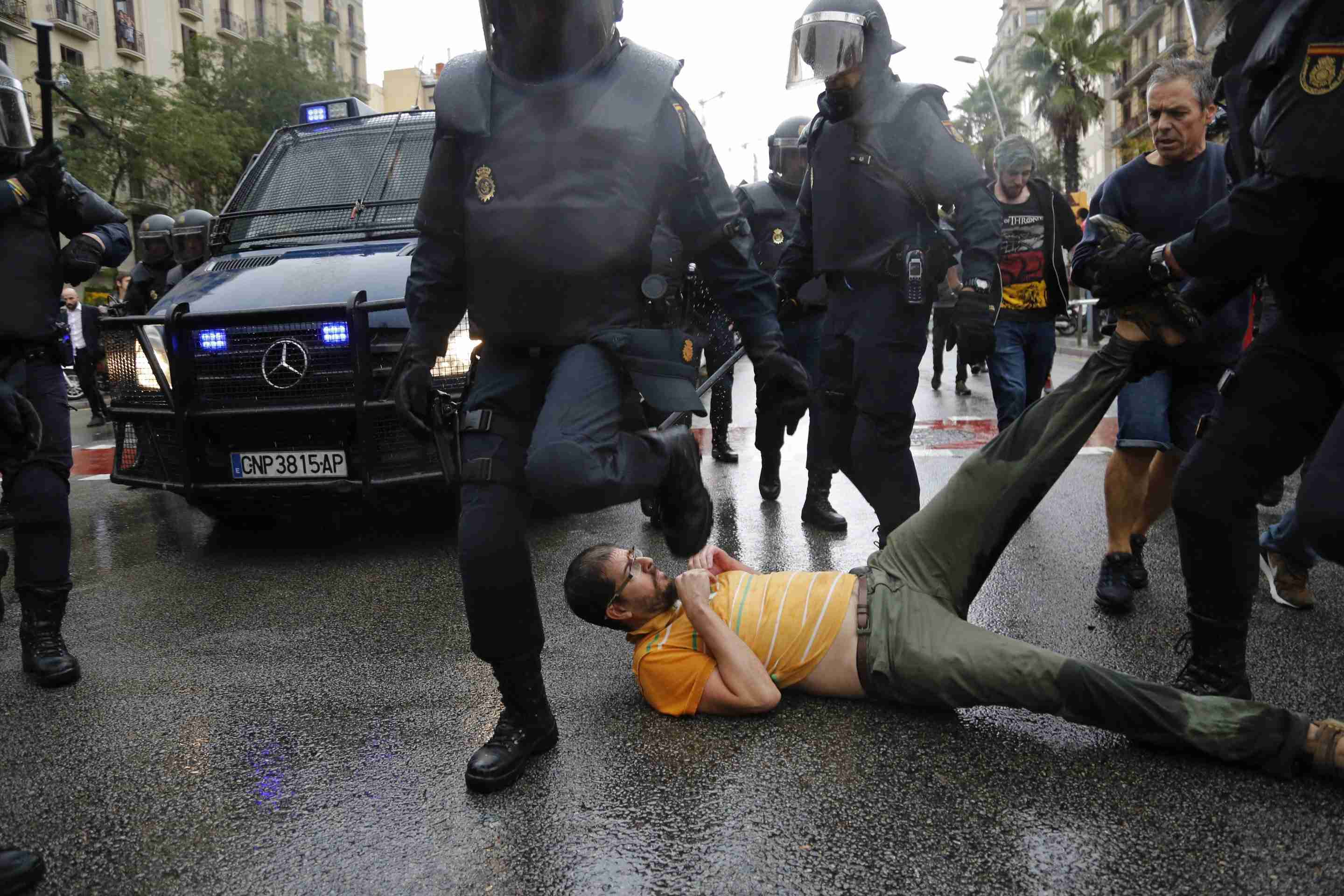Catalan group Òmnium Cultural has now initiated a private prosecution against Spanish police officers who used violence against members of the Catalan public during the independence referendum of 1st October 2017, now three years ago. In the case, which a Barcelona court is conducting, around 50 Spanish police officers are being investigated.
Marcel Mauri, vice-president of the pro-independence cultural organization, announced on Wednesday that it would be appearing in the case and says it is laying complaints with the UN and the Council of Europe about all National Police and Civil Guard operations in Catalonia on October 1st 2017, in order to force the Spanish state to investigate the facts effectively and identify those responsible. The cultural body considers that Spain is in breach of its international obligations, as the public prosecution service is obstructing the investigations and many agents who assaulted voters have received awards.
"Violence must not go unpunished," Mauri said, recalling that "the violence of 1st October has not yet been investigated, despite Spain's obligation to do so." The presentation of a priavte prosecution in the case being conducted by Barcelona court number 7 is only the first step. Òmnium plans to appear in other cases that are also underway "to stand with the victims and denounce the inaction of the Spanish government, the obstacles erected by the prosecution service and the will of the state authorities to cover up the referendum violence, to cover up all this repression."
The investigation
The Barcelona Court of Instruction 7 is where the use of violence by the Spanish police at the "1-O" referendum is being investigated. This is where the bulk of the investigation is centred, although in other courts in Catalonia, complaints that were presented as a result of police use of violence to try and stop the referendum are also continuing. There are eight command leaders and 40 ordinary officers being investigated.
In Barcelona, all the police command leaders have been identified, the charges against them are clear and they will come to trial. This is the first time that all the police chiefs involved in the operation in Barcelona who are attributed with the responsibility for the police use of violence have been charged. The judge, however, has yet to decide how many of the 40 officers investigated will be sent to trial.
The investigative phase of the judicial process, which is in its final stretch, is also awaiting the Barcelona High Court's resolution of appeals that are pending.
In June this year, prosecutors asked for the case to be closed, arguing the "legitimacy of the police action." But the judge rejected the submission because the police action "did not conform in any way to the provisions of current legislation or existing protocols or international standards." The judge also describes the police brutality and how voters were treated and does not support the arguments of the Spanish police: "[People] were dragged along the ground in all sorts of different ways, by their hair or by their jaws, they were thrown down stairs, trampled on by officers, ignored after they were seriously wounded, without going into the insults that some citizens claim to have received".
Below: Compilation video of some Spanish police actions against the Catalan public on 1st October 2017.

